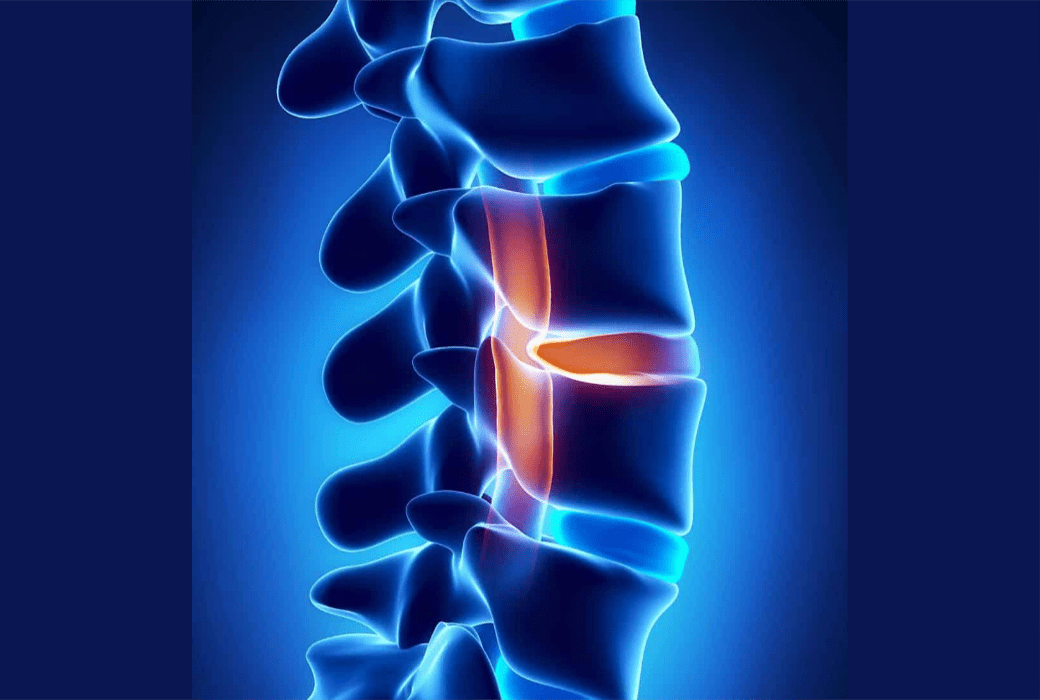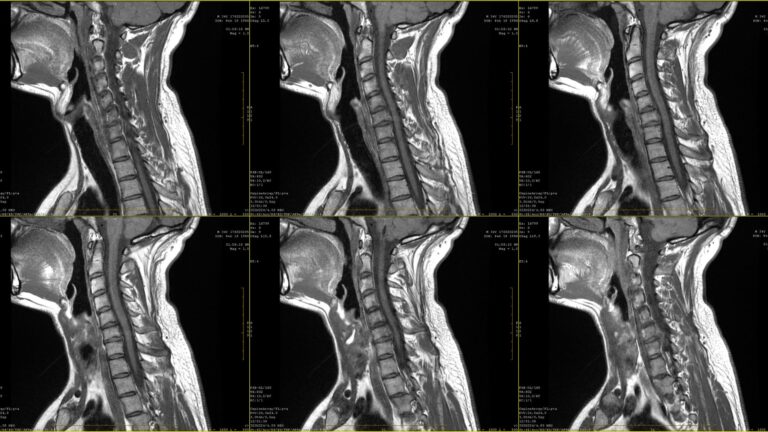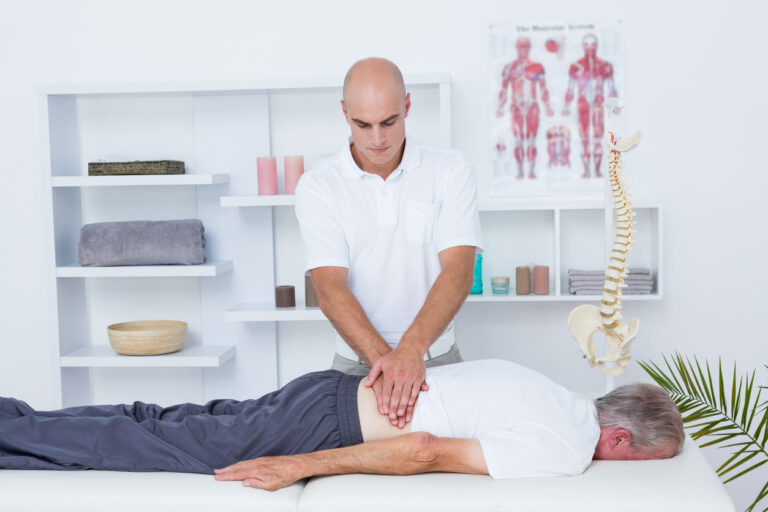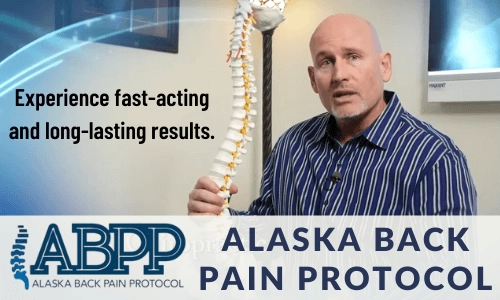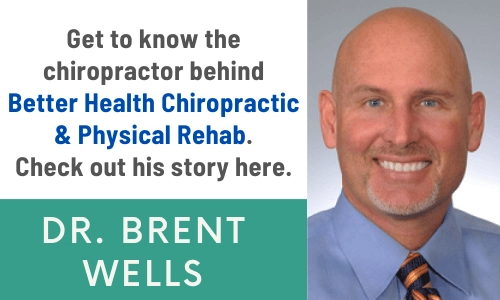Dealing with the pain of a herniated or slipped disc can make the simplest things very painful. But if the disc doesn’t seem to be healing, it’s easy to lose hope. You may be wondering if it will ever heal. Read on to discover the long-term effects and prognosis for a herniated disc.
Although rare, the long-term effects of untreated herniated discs can be severe. They can cause permanent nerve damage, causing a loss of sensation in the legs, loss of bowel control, or partial paralysis. This is why it’s important to seek treatment for herniated discs.
Can A Herniated Disc Cause Permanent Nerve Damage?
Sometimes there are no symptoms associated with a herniated disc. This is because not all disc herniations press on a nerve, which is the main cause of herniated disc pain. Sometimes herniated discs with no symptoms simply heal on their own. Other times the symptoms come later. The important thing to realize here is that any time you have pain in the back, it’s a sign that something is wrong.
When left untreated and therefore allowed to continue pressing on a nerve, a herniated disc can cause permanent damage. The nerves can only stand up to so much stress before they themselves undergo damage. For this reason, herniated discs should be treated quickly to ensure the best possible outcome.
Long-Term Effects of a Herniated Disc in the Back
The most common location for a herniated disc is the low back. This area, otherwise known as the lumbar spine, tends to get overused. Things like poor posture, lacking workspace ergonomics, injuries, continual sitting, and improper lifting can all contribute to disc herniation in the back.
In addition, people may find it difficult to sleep with a herniated disc, which only compounds the problem, since the body needs sleep to heal. Unfortunately, the long-term effects of a herniated disc in the back are not good.
When left untreated, a herniated disc in the back can develop from occasional pain into chronic pain. If it continues to be ignored, it can cause permanent nerve damage. While chronic pain is the more common outcome, the possibility of nerve damage should not be ignored.
Patients with untreated herniated discs in the back find it hard to perform everyday tasks and may turn to dangerous opioids or other painkillers for relief. Unfortunately, this doesn’t actually treat the disc, it simply masks the pain.
Luckily, treating a herniated disc in the back is commonly done without surgery or other invasive methods. Chiropractic care is good for treating herniated discs and is the preferred conservative option that should be tried before considering surgery.
Long-Term Effects of a Herniated Disc in the Neck
The long-term effects of a herniated disc in the neck are often similar to those accompanying a disc in the back. However, there are some key differences that you should be aware of. Chronic pain is common, but not just in the neck. An irritated nerve in the neck can cause pain in the shoulders and arms, as well. And, if left untreated, it can limit a person’s ability to stay active without experiencing debilitating pain.
Like a herniated disc in the back, when this happens in the neck it’s important to seek professional help as soon as possible. Chiropractic care is ideal for most herniated discs anywhere in the spine.
Herniated Disc Recovery Time
Recovery time for a herniated disc depends on several factors. These include:
- The severity of the herniation.
- The location of the herniation.
- Any underlying cause that led to the herniation.
- The overall health of the patient.
- The lifestyle and demands on the patient.
- The preferred course of treatment.
For some people, the pain fades away within days of starting treatment. For others, it can take months for the herniation and its associated symptoms to disappear completely. However, for most people, it takes about a month to get back to normal. Four to six weeks is the average with proper protocols.
Herniated Disc Recovery Options
As mentioned above, it’s best to exhaust any conservative options before considering surgery. Sometimes the major concern while dealing with a herniated disc is pain management. This is one reason chiropractic treatment has seen such success in fixing herniated discs. Chiropractors focus on pain management and healing the compression that caused the disc herniation in the first place.
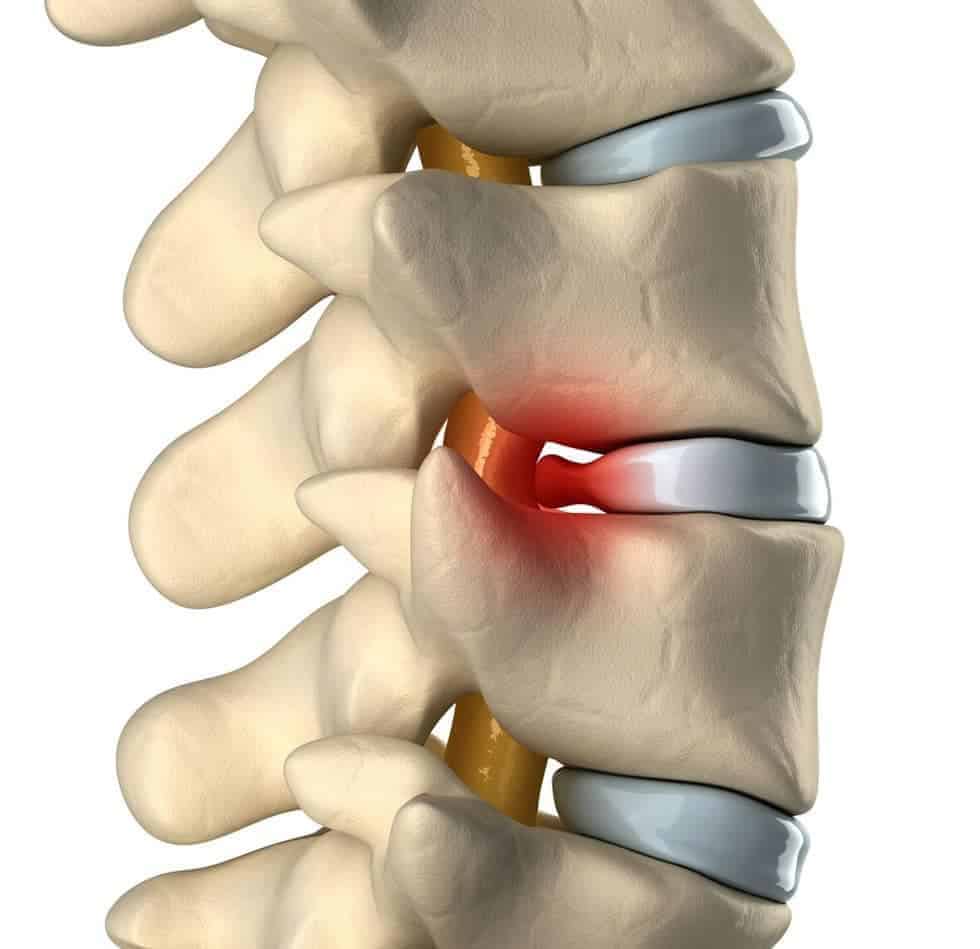
Chiropractic Care for Herniated Disc
Chiropractors focus on the spine as a whole after taking a detailed medical history and determining if you’re an ideal candidate for chiropractic care. The most common chiropractic treatment for herniated discs is a combination of spinal adjustments, manual therapy, and physical therapy exercises.
The idea is to treat the cause of the herniation by gently but forcefully separating the discs, promoting healing in the area, and relieving pain. To do this, chiropractors often use flexion-distraction. Sometimes this is done with a special machine that lengthens the spine to relieve the pressure on the disc and therefore the nerve it is pressing against.
To relieve pain, chiropractors often use hot and cold therapy, massage, and suggest exercises to release endorphins. They also focus on strengthening the area and correcting any posture or lifestyle issues that may have contributed to the herniated disc.
If you need chiropractic care in Alaska, contact our chiropractors for a same-day appointment at Better Health Anchorage.
Other Treatment Options
There are a few other treatment options you can choose from, depending on the type of doctor you see.
- A physician may prescribe steroidal injections to help reduce pain and inflammation.
- Physical therapy, which we also practice in our Anchorage chiropractic office, is often recommended after steroid injections.
- If the pain is bearable, general practitioners often use a “wait and see” approach. They may suggest you take NSAIDs like Ibuprofen.
What to Do If A Herniated Disc Still Hurts After a Year?
The tricky thing about a herniated disc is that the pain tends to come and go. But if you’re still experiencing instances of pain after a year and you haven’t sought treatment, it’s time to call on a professional.
However, if you feel constant pain that lasts 6 weeks or more, you should definitely see a medical professional. Letting that pain go on for a year can be dangerous. The good news is that even after a year of intermittent herniated disc pain, you can still benefit from non-surgical options.
If you’re still experiencing pain after a year, see a chiropractor immediately for a diagnosis. Sometimes what you think is herniated disc pain is actually something else altogether. Plus, many chiropractic patients report improvements in as little as 2 sessions.
Herniated Disc Long-Term Effects and Prognosis: Conclusion
Remember that there’s a misconception that herniated discs can heal themselves. The pain may go away, but if you don’t find out what caused the herniation to begin with, you can expect to experience it again.
Leaving a herniated disc untreated can cause severe complications due to nerve damage. Partial paralysis, saddle bag anesthesia, and loss of bowel and bladder function are all extreme cases, but they can happen.
Most people (about 90%) who have herniated discs will experience relief without the need for surgery. And invasive options should only be considered when conservative options like chiropractic treatment have been exhausted.
Resources:
https://www.ncbi.nlm.nih.gov/books/NBK279472/
https://www.sciencedirect.com/science/article/abs/pii/S1529943004001184
https://www.sciencedirect.com/science/article/abs/pii/S0161475415001840


